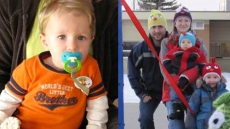The case of an Ontario pastor who reported to police information a parishioner shared with him during a church conversation has raised questions about the confidentiality of confessions to religious leaders.
Rev. Eduardo Cruz's report helped police solve a seven-year-old murder case involving an unidentified body found in a burning suitcase in an industrial parking lot north of Toronto in 1994.
Elaine Biddersingh, the parishioner whose information the Pentecostal pastor reported to police, was later charged with first-degree murder in the death of her 17-year-old stepdaughter Melonie.
Biddersingh has pleaded not guilty to the charge, while her husband, Everton Biddersingh, has been convicted of murder and sentenced to life in prison in Melonie's death.
Cruz told Elaine Biddersingh's murder trial on Tuesday that he decided to go to police after the woman confided in him details of the abuse Melonie had suffered in her father's home before she had "died like a dog."
The pastor's action came as no surprise to William Griffin, an adviser with the Pentecostal Assemblies of Canada who said if the church learns a crime has, or will be committed, it will co-operate with authorities.
It is the same in Judaism, said Rabbi Baruch Frydman-Kohl, spiritual leader of the Beth-Tzedec Congregation.
"Confidentiality applies in matters that are not illegal," he said.

If someone, for example, admitted to abusing their child, Frydman-Kohl said he would encourage that person to go to the authorities. Failing that, he said he would report the matter himself.
There is also no confidentiality within Islam with respect to criminality, according to Mohammad Iqbal AlNadvi, chairman of the Canadian Council of Imams.
"If there is a crime, then I will go to police," Alnadvi said. "And if he or she wants to harm someone, I will not support him and, secondly, I will go to the authorities."
But it's different in Catholicism, which has the sacrament of reconciliation, more commonly known as confession.
"A priest can never divulge what he hears in the sacrament of reconciliation and if he does so, he is ex-communicated," said Rev. Michael McGourty, the pastor of St. Peter's Parish in Toronto.
"I guess the church would say that is a higher law than civil law."
The rationale, McGourty said, is based on confession, through which Catholics believe a person receives forgiveness directly from Jesus Christ, and the priest is nothing more than a vessel.
"So that whatever I hear in the sacrament of reconciliation, the understanding is I'm not really hearing it — I'm hearing it on behalf of Christ," McGourty said.
But, McGourty said, priests won't ignore what is revealed in confession.
"In most cases a priest might encourage someone to turn themselves in or might suggest, say, if someone said they killed someone and the body is in such-and-such a place, for the good of that family you should go to police," he said.

Legally, religious officials do not have a blanket privilege of confidentiality in Canada, said criminal lawyer Dan Brown.
That privilege to maintain the secrecy between someone and their religious official is decided on a case-by-case basis, he said.
That will be decided by a judge during a voir dire, where the admissibility of evidence is argued.
"What the court then does is examine the particular statement to the cleric or religious person and then determine whether there was an expectation of privacy. Was it said in confidence? Was it said for spiritual guidance or healing? Without those, confidentiality can't be protected," Brown said.
If the judge deems there is no privilege, then a religious leader must testify.
"If they don't testify, they can be held in contempt of court," Brown said.


